Food
3 foods believed to have spiritual significance
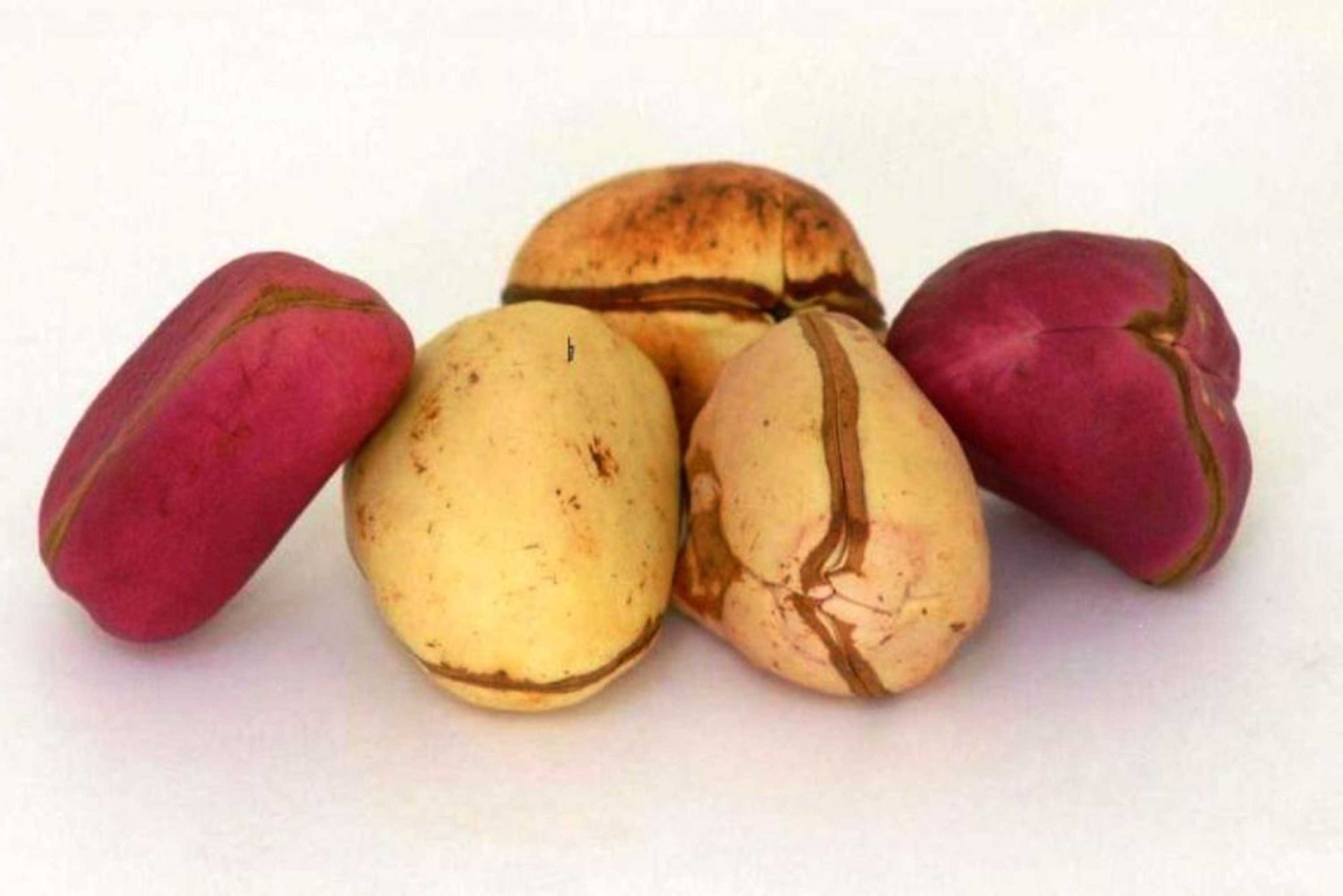
Certain foods have been considered spiritually significant and have been seen as a medium for a deeper connection to the divine.
These foods, often intertwined with religious and cultural traditions, have the power to evoke a sense of reverence, gratitude, and transcendence.
These foods also perform a variety of spiritual roles as a binding factor of humankind to the natural environment. They are present at ceremonies and in some situations are referred to as the food of the gods. Below are the three foods;
1) Kola nut
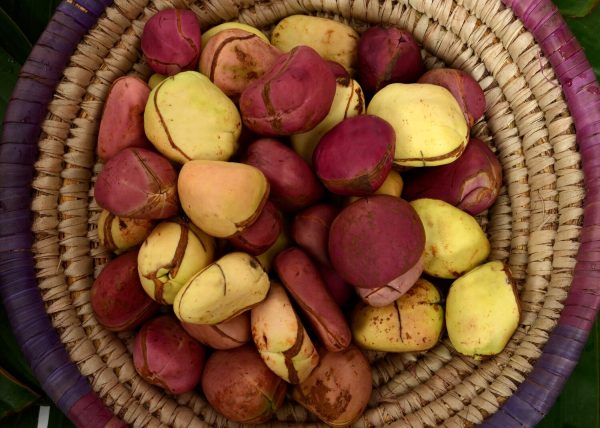
It is safe to say that the kola nut has never been referred to as just a fruit. It is one fruit that has huge significance and impact at both social and religious gatherings, especially in West Africa.
In Igboland, the kola nut is referred to as the king of all fruits, and it is often said that “he who brings kola nut brings life”. In some situations, Kola nut is used to communicate with the gods of the land.
2) Bitter kola
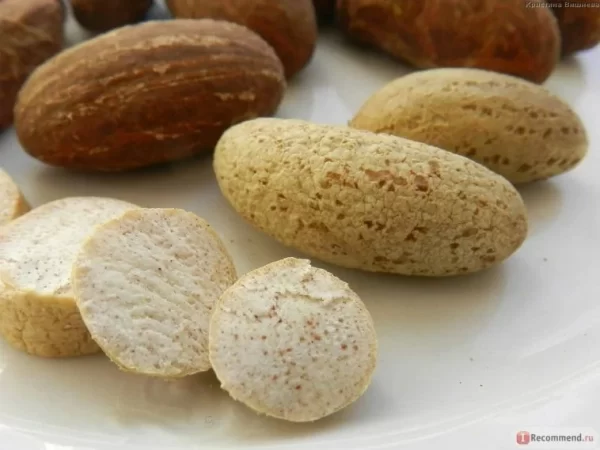
The bitter kola is another fruit that is popular for its spiritual significance. It is held in high esteem by some due to its ability to repel snakes. Some people also use bitter kola to induce supernatural immunity from any form of harm, either physical or spiritual.
3) Bread and wine

Another food held in high esteem spiritually, especially by Christians is the bread and wine used in the sacrament of Communion. It is believed that this represents the body and blood of Jesus Christ and eating the communion represents a spiritual union with the divine.
In addition to the above, some other foods that are often revered for their healing and magical properties, include honey, ginger and even water or holy water.
The spiritual significance of these foods however differs depending on cultural and religious contexts. The specific meanings and practices associated with these foods may also differ within different traditions.
Food
5 amazing facts about pork that makes it the best meat
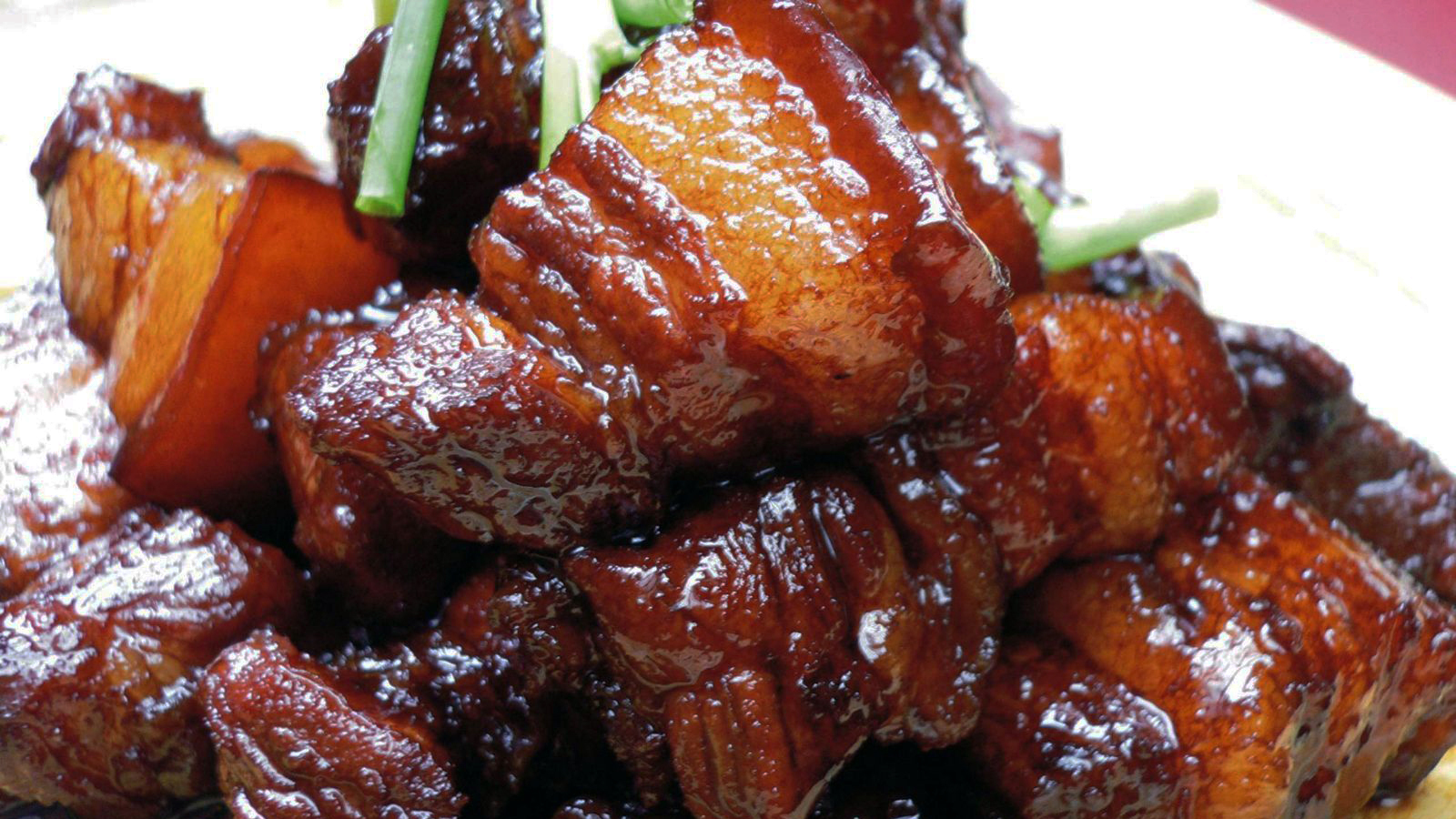
Pork is a controversial choice among meats for many reasons, often hailed for its flavor, versatility, and nutritional benefits.
Here are five amazing facts that make pork a top choice for many consumers:
Flavor and fat content
Pork is highly prized for its rich, savory flavor, which is enhanced by its fat content.
Unlike other meats, much of the fat in pork is interspersed within the muscle, a characteristic known as marbling.
This marbling not only enhances the flavor but also contributes to a tender, juicy texture when cooked, making dishes like pulled pork or pork belly particularly succulent and tasty.
It can be cooked in many ways
One of the most significant advantages of pork is its versatility in cooking. It can be smoked, grilled, roasted, sautéed, or braised.
Pork adapts well to a variety of cooking methods and can be used in countless recipes across global cuisines, from American barbecues with pork ribs to Spanish tapas featuring chorizo or Italian dishes with pancetta.
Many nutritional benefits
Pork is an excellent source of high-quality protein, which is essential for muscle maintenance and growth.
It is also rich in several important vitamins and minerals, including B vitamins (particularly B1, B6, and B12), which are crucial for a range of physiological functions including energy metabolism and neurological health.
Pork also provides important minerals like phosphorus, selenium, and zinc.
It is economical and sustainable production
Pork production is generally more cost-effective and resource-efficient compared to beef.
Pigs have a higher feed conversion efficiency rate than cattle, meaning they convert a greater proportion of their feed into body weight.
This makes pork a more sustainable option in terms of resource use and environmental impact, considering the global need to optimize food production systems.
Rich in creatine
Pork is one of the richest natural sources of creatine, a compound important for energy storage in muscle cells. This makes it particularly beneficial for athletes and bodybuilders looking to improve performance and muscle growth.
Consuming pork can help increase the levels of creatine in the body, potentially enhancing physical performance and aiding muscle recovery during and after exercise.
These attributes make pork a favored choice among many meat-eaters, blending culinary pleasure with substantial nutritional benefits, and making it an appealing option for a balanced diet.
Food
3 foods you must avoid to burn belly fat

Excess fat around the midsection not only affects your appearance but also poses risks to your health.
While regular exercise and a balanced diet are essential for achieving this goal, certain foods can hinder your progress.
This article explores three foods – both solid and liquid – that you should avoid if you’re aiming to burn belly fat.
1. Processed foods
Processed foods are often high in unhealthy fats, sugars, and artificial additives, making them a major contributor to belly fat accumulation. These include packaged snacks, sugary cereals, fast food, and ready-to-eat meals. These foods are typically low in essential nutrients and fibre, which can lead to overeating and weight gain.
Additionally, the high sodium content in processed foods can cause water retention and bloating, further exacerbating the appearance of belly fat.
Alternatively, opt for whole, unprocessed foods like fruits, vegetables, lean proteins, and whole grains. These foods are rich in nutrients, fibre, and antioxidants, which can support healthy weight loss and reduce belly fat over time.
2. Sugary beverages
Sugary beverages such as soda, fruit juices, energy drinks, and sweetened coffee drinks are loaded with empty calories and contribute to belly fat gain. These drinks are high in fructose, a type of sugar that is metabolised by the liver and stored as fat if consumed in excess. Additionally, sugary beverages provide little to no nutritional value and can cause spikes in blood sugar levels, leading to increased hunger and cravings for unhealthy foods.
Alternative: Stay hydrated with water, herbal teas, or infused water with fresh fruits and herbs. These alternatives are calorie-free and can help curb cravings while promoting hydration and overall health.
3. Refined carbohydrates
Refined carbohydrates like white bread, white rice, pasta, and pastries are quickly broken down into sugar by the body, leading to spikes in blood sugar levels and insulin resistance. This can promote fat storage, especially around the abdominal area. Additionally, refined carbohydrates lack fibre and essential nutrients, leaving you feeling hungry and unsatisfied shortly after eating.
Alternatively, choose whole grains like brown rice, quinoa, oats, and whole wheat bread, which are higher in fibre and nutrients and promote feelings of fullness and satiety. These complex carbohydrates are digested more slowly, helping to stabilise blood sugar levels and reduce belly fat accumulation.
Achieving a trimmer waistline and burning belly fat requires a holistic approach that includes regular exercise and a balanced diet.
By avoiding processed foods, sugary beverages, and refined carbohydrates, you can support your weight loss goals and improve your overall health.
Instead, focus on consuming whole, nutrient-dense foods that nourish your body and promote fat loss. Remember, small dietary changes can lead to significant results over time, so choose your foods wisely and prioritise your health and well-being.
Food
5 foods that can sustain Nigerians amid hardship

With the cost of commodities, including foods, gradually getting above the means of the common man, Nigerians have continued to lament how difficult it is to survive amid the hardship occasioned by the economy.
Here are, however, five affordable foods that can help Nigerians sustain themselves during the hardship:
Garri
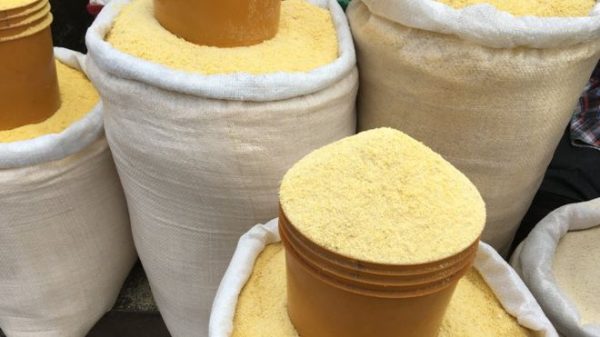
A common food that can be included into various culinary meals, served with soups, or simply consumed as is. It is currently one of the most economical meal items to help you get through the hardship.
Noodles
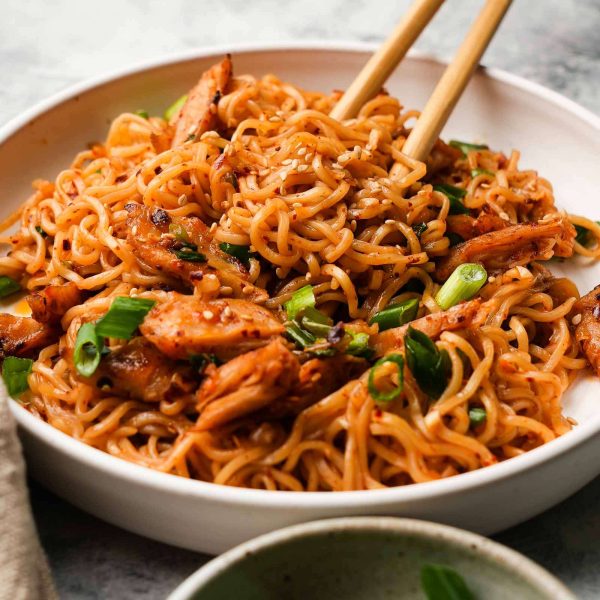
With just N400, you can purchase two noodles and have them quickly cooked to get through some hours in the day, and stave off hunger.
Bread
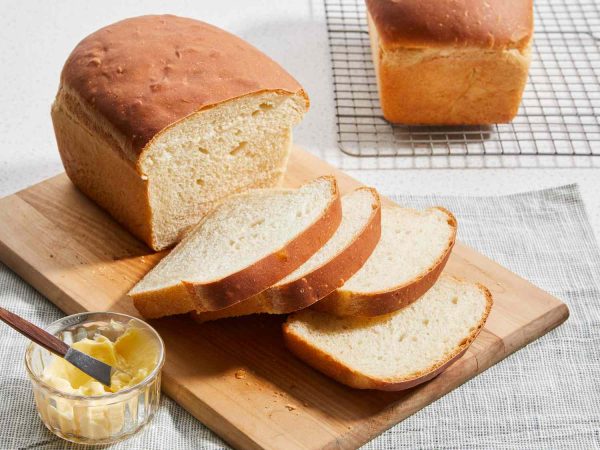
For as little as N500, you can buy a loaf of bread and pair it with butter or stew.
Yam
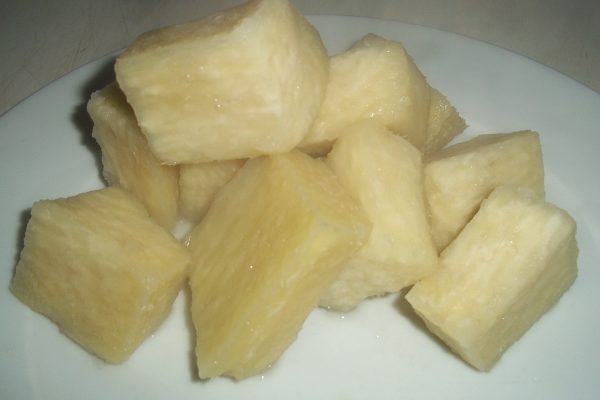
For N1,000 – 1200, you can buy a tuber of yam and eat it twice or three times, depending on how much food you consume.
Vegetables

Amid the hardship, this appears to be a very affordable food option for those who want to cook soup and serve it alongside other solid foods or rice.
-

 News1 week ago
News1 week agoFAAN reopens Lagos airport runway after Dana Air incident
-

 Crime2 days ago
Crime2 days agoUK-based Nigerian doctor, Tijion Esho loses licences over sex for free Botox injections
-

 News5 days ago
News5 days ago‘Mischievous narrative’ — Yahaya Bello’s media office reacts to ‘American school refunding $760k’ claim
-

 News1 week ago
News1 week agoNigeria Air: EFCC vows to arraign Sirika over alleged contract fraud
-

 Education1 week ago
Education1 week agoUNN suspends, probes lecturer attempting to sexually assault female student
-

 Entertainment3 days ago
Entertainment3 days agoGunmen abduct singer Gnewzy in Delta, demand $200k ransom
-

 Entertainment5 days ago
Entertainment5 days agoFamily announces burial arrangements for junior pope
-

 World1 week ago
World1 week agoNigerian lady Clara Chizoba Kronborg certified as world record holder for longest interviewing marathon


















